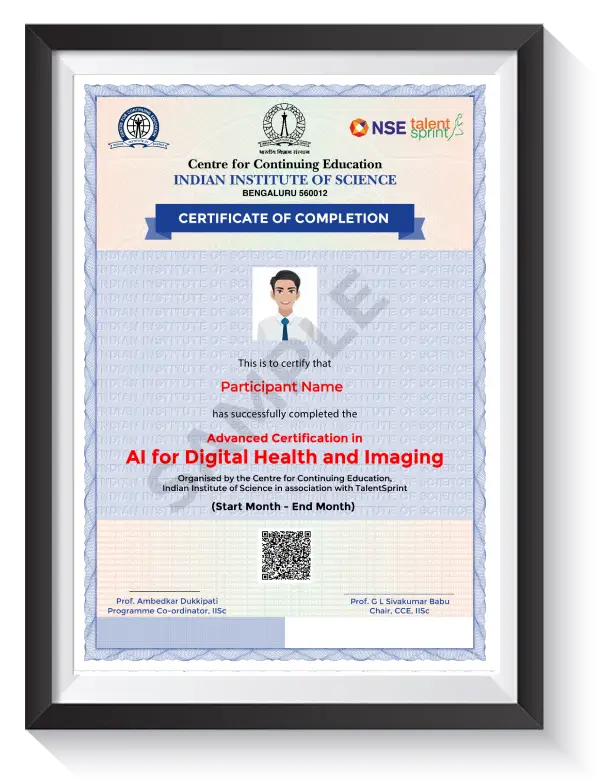TalentSprint has partnered with Center for Continuing Education (CCE) at IISc for their executive
education programmes in disruptive and emerging technologies.
IISc is India’s premier institution for advanced scientific and technological research and
education. It is one of the first three publicly funded institutes to be awarded the Institute of
Eminence status.
The institution’s reputation and pre-eminence consistently feature it in global university
rankings. The institution has been home to distinguished alumni who have had noteworthy academic and
industry positions around the globe.
IISc has been consistently recognised as India’s #1 University and #1 Research Institute by the
National Institutional Ranking Framework (NIRF) 2024 Ranking. For More information, visit: https://www.nirfindia.org/2023/Ranking.html
TalentSprint brings high-end and deep-tech education to aspiring and experienced professionals in partnership with top academic institutions and global corporations. Its patent-pending, AI-powered, digital learning platform enables a perfect blend of high-end academics and industry-leading practitioner experience. TalentSprint offers in-depth understanding of the deep technologies, access to industry experts, and a state of art technology platform. For more information, visit www.talentsprint.com.
 Coding
experience
Coding
experience 























 Check my eligibility for the scholarship
Check my eligibility for the scholarship Internet Banking
Internet Banking Credit/Debit Card
Credit/Debit Card UPI Payments
UPI Payments



